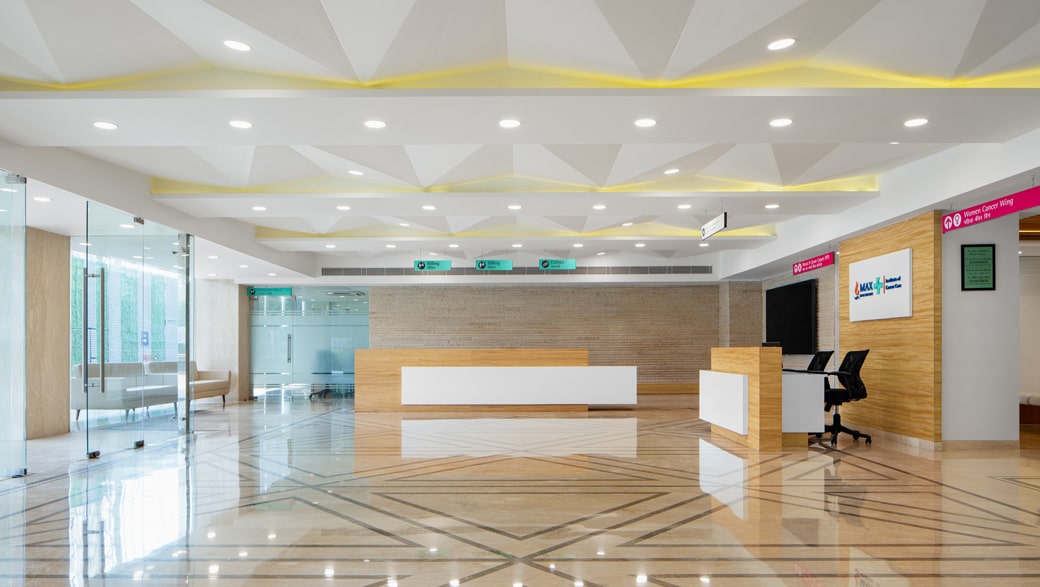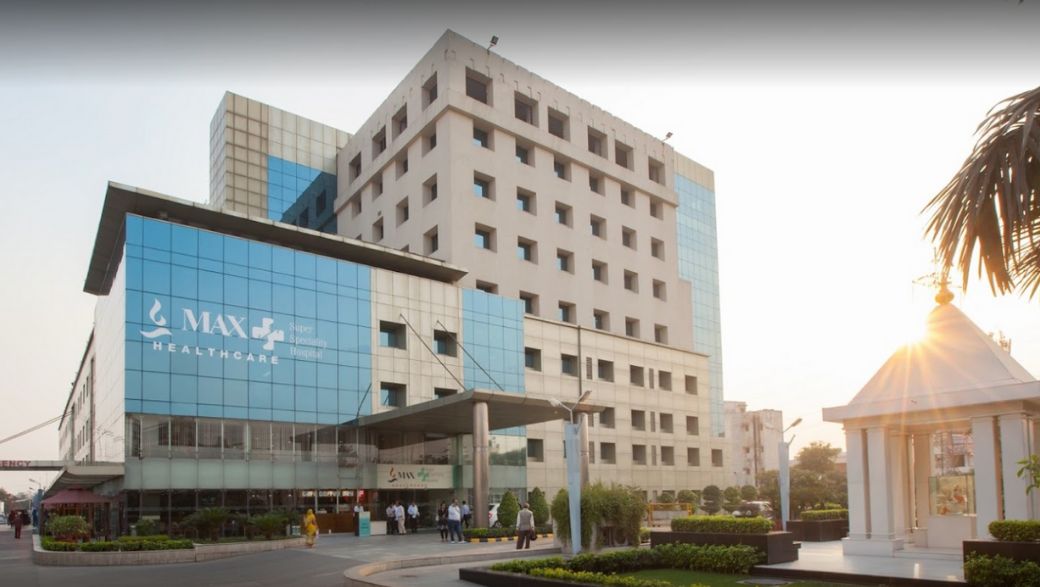Defeat breast cancer with the help of our Breast Cancer Specialist
Breast Cancer Treatment In Noida
Defeat breast cancer with the help of our Breast Cancer Specialist
Breast Cancer Treatment In Noida

Breast Cancer Symptoms And Risk Factors
Breast cancer symptoms include unusual weight loss, pain or bleeding from particular parts of your body like the mouth, breast, or rectum, fatigue, and significant fever, skin problems like rashes or warts.
Breast cancer is associated with different types of risk factors. With a family history of breast cancer, some risk factors are things you can’t change. Other risk factors, such as being overweight, drinking alcohol, or not being active, may be something you can change.
Certain breast cancers are linked to inherited gene mutations (changes). Inherited genetic mutations account for about 5% to 10% of all breast cancers. In women, the development of breast or ovarian cancer is higher when she has a harmful mutation in the BRCA1 or BRCA2 genes. But most women who get breast cancer do not have an inherited genetic mutation and do not have a family history of the disease.
How We Diagnose Breast Cancer
We perform a test to detect lumps or abnormalities in the breasts. Our doctors will ask for the patient’s symptoms and medical history to determine the cause or rule out other conditions. If they suspect cancer, they may also recommend several diagnostic tests, which can include:
Mammogram (breast X-ray)
The doctor suggests a diagnostic mammogram if an anomaly is discovered on your screening mammogram. Breasts are imaged with X-rays that are meant to look for abnormalities. Breast cancer treatment is commonly screened with mammograms.
Ultrasound
Ultrasound is the process of taking pictures of locations deep within the body by using sound waves. Ultrasound may determine whether a new breast lump is a solid mass or a fluid-filled cyst.
Breast MRI
Doctors suggest a breast M.R.I to patients. Before a breast M.R.I., you receive an injection of dye. And then use a magnet and radio waves to create pictures of the interior of your breast. Unlike other imaging tests, an M.R.I. doesn’t use radiation to create the images.
Biopsy
A doctor inserts a thin needle into your breast and removes a small piece of cell or tissue for examination under a microscope. And doctors leave behind one of several types of markers or dyes that can be detected during subsequent testing.

Insight And Advice From Our Senior Oncologist
A complex disease like breast cancer is challenging to treat. Many people receive the same diagnosis or are prescribed the same medicine, but no two people experience things differently. In many urban populations, breast cancer is the most common type of cancer, affecting mainly middle-aged women. Breast cancer comes in various types, and breast cancer treatment is available.
Treatment We Provide
If cancer is detected, our physicians will work together to create a treatment plan tailored to each patient’s needs. We aim to minimize side effects and downtime with individualized care to maximise your chances of survival. Typically, treatments can include:
Surgery
Our surgeons are expertly trained in several different options for removing breast cancer cells through surgery.
Chemotherapy
A group of drugs is used in chemotherapy to prevent cancer from spreading. Depending on the cancer stage, the drugs can be delivered by vein or catheter.
Radiation Therapy
Radiation therapy uses high-energy rays to kill cancer cells. Depending on your cancer type and location, radiation therapy can be used externally or internally.
Biological treatment
The biological treatment uses your body’s immune system to fight against cancer. It works by stimulating your immune system or introducing new organisms that destroy cancer cells.
Our Centers
Find the Best Breast Cancer Treatment Centers in Noida

Zeeva Clinic, Sector 63,
Noida
H 1A/37, Sector 63, Noida, Uttar Pradesh 201301

Max Super Speciality Hospital,
Vaishali
W-3, Ashok Marg, near Radisson Blu Hotel, Sector-1, Vaishali, Ghaziabad, Uttar Pradesh 201012

Max Super Speciality Hospital,
Noida
A364, A Block, Pocket A, Sector 19, Noida, Uttar Pradesh 201301

Zeeva Clinic, Sector 104,
Noida
Zeeva Clinic, HA 103A, First Floor, SECTOR 104, Noida- 201304

Max Super Speciality Hospital, Patparganj
108A, I.P.Extension, Patparganj, Delhi,
110092

Zeeva IVF Center & Clinic,
Gaur City
FF – 133B, Mahagun Mart Mall, Greater Noida W Rd, Gaur City 2, Uttar Pradesh 201309
Our Blogs
Recent Articles and News
Cervical cancer is the fourth most common cancer diagnosed…
Every year, over 123,000 women in India are diagnosed…
Pancreatic cancer is one of the most challenging cancers…
HAPPY CLIENTS
What Our Patients Are Saying

a months ago
|| Dr Vikas is very calm and approachable, listens to his patients very carefully and resolves every problem.
Under his treatment, I never felt that I was going through something so difficult in my life.
He was always a call/msg away. My treatment went really well under his guidance. I will always be thankful to him.
GET EXPERT GUIDANCE ON CANCER
Request a Callback
Zeeva – The Best Breast Cancer Treatment Centre in Noida and Delhi NCR
Zeeva Oncology is a division of a leading clinic firm ‘Zeeva Clinic.’ We are one of the leading destinations for breast cancer treatment in India. With a vision, to set up a world-class facility and provide advanced cancer, it was founded in 2019 by Dr Vikas Goswami.
Under the guidance of the best doctors and surgeons, we use cutting-edge technology, resulting in the highest level of service and treatment standards. Having located in the posh location of Noida, the clinic is well equipped with advanced infrastructure.
Are you looking for the best Cancer Hospital in Delhi NCR? Get the best treatment from the leading cancer hospital in Noida.
Dr Vikas Goswami – The Best Breast Cancer Specialist In Noida And Delhi NCR
Dr. Vikas Goswami is a highly experienced Medical Oncology Senior Consultant at Max Healthcare (Vaishali and Greater Noida). He is a well-trained medical oncologist and has great recognition and reputation at the national and international levels.
He holds a graduate degree from one of the prestigious medical institutes, Maulana Azad Medical College, New Delhi. He has also completed his training in Internal Medicine at the reputed Gandhi Medical College in Bhopal. Later, he underwent a vigorous three years of training and a post-doctoral in Medical Oncology. He attained specialization in Medical Oncology from the esteemed National Board of Examinations, i.e. the Rajiv Gandhi Cancer Institute and Research Institute, New Delhi. It is very rare to find doctors in India who have impressive qualification records.
FREQUENTLY ASKED QUESTIONS
01/ What if I don’t want cancer treatment?
Patients with breast cancer sometimes decline to follow their doctors’ recommendations for treatment. Discussing and planning for this possibility with your doctor may help you decide how to proceed if you choose to forgo treatment.
02/ What are the symptoms of breast cancer?
The signs and symptoms of breast cancer include a painless lump or mass, bulging of the skin, puckering, dimpling, nipple retraction, change in skin colour, and discharge—and even having a few of these is not proof that one has breast cancer. An examination by a breast cancer specialist is recommended if such symptoms are present.
03/ Is Mammography Painful?
Breast compression during mammography can cause discomfort. Doctors may prescribe painkillers approximately 45 minutes to 1 hour before the test to reduce pain. Doctors advise patients to schedule the test a week after the end of their menstrual periods since breasts are less tender at that time and hurt less.
04/ What are the top risks for breast cancer?
Research has shown that several factors—including increasing age, alcohol consumption, late pregnancy, early menstruation, late menopause, a family history of breast cancer, use of oral contraceptives, and history of radiation therapy—contribute to the risk of developing breast cancer.
05/ Can reproductive and menstrual histories increase breast cancer risk?
Women who do not have biological children or become pregnant for the first time after the age of 30 are at an increased risk for certain cancers. Furthermore, women who get their periods before the age of 12 or experience menopause after 55 are also at risk.
Monday – Saturday
08:30am – 08:30pm


![Cervical Cancer – Symptoms, Causes, Treatments, Prevention & Vaccine [UPDATED]](https://www.zeeva.in/oncology/wp-content/uploads/2020/07/Banner.jpg)


